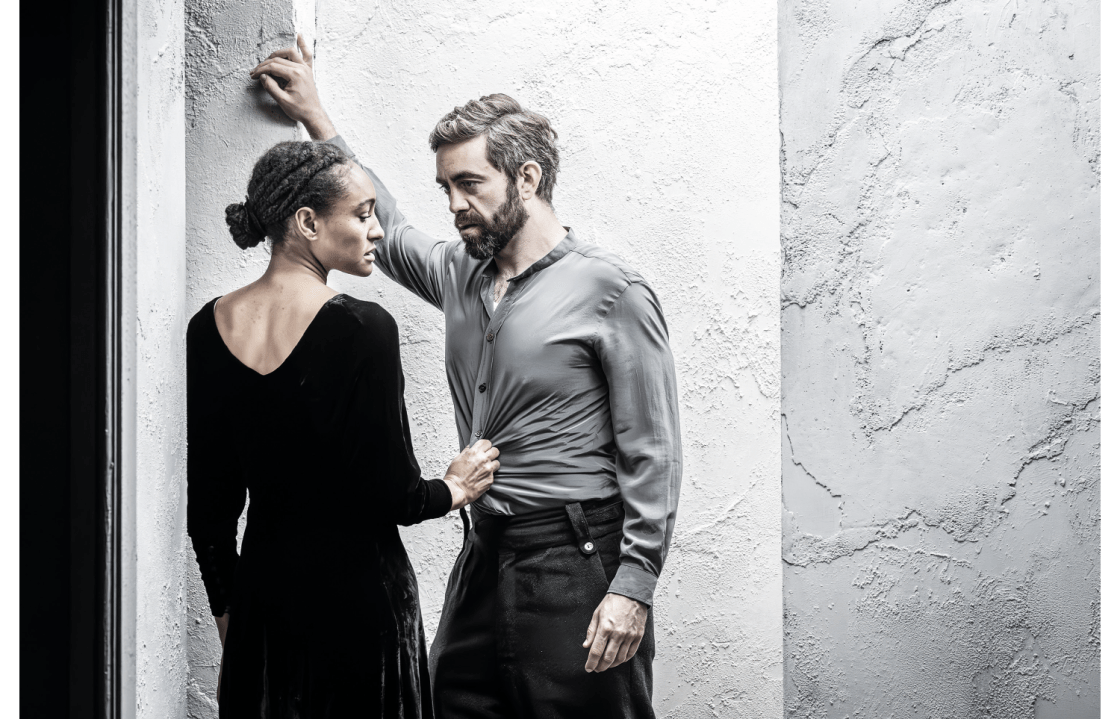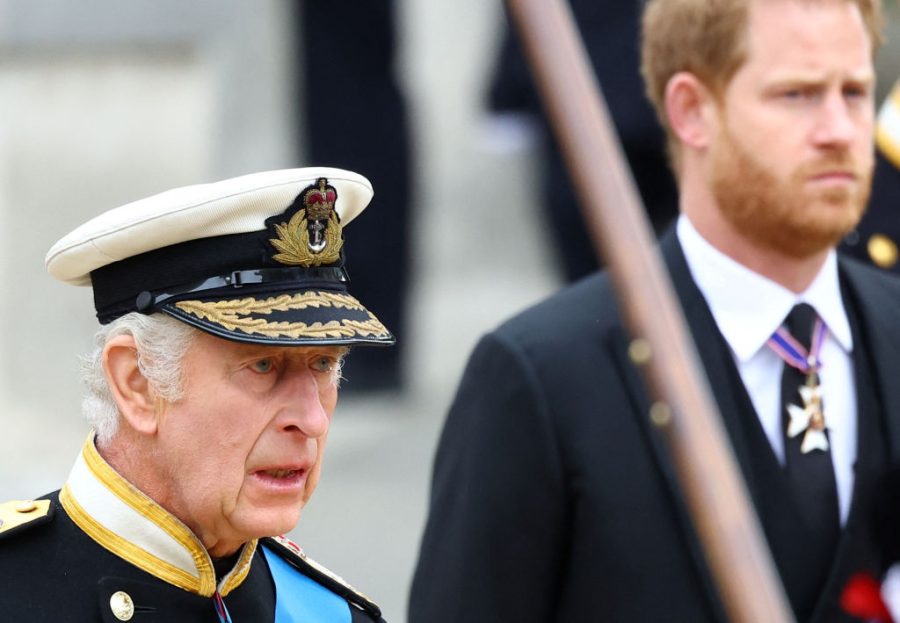Visit From An Unknown Woman, adapted by Christopher Hampton from a short story by Stefan Zweig, opens like an episode of Seinfeld. A playboy writer enjoys a fling with a black-clad beauty – but when he kisses her goodbye, he can’t remember her name. It feels like a set-up for a gag, but the script is very short of jokes.
A year passes and the mysterious beauty, named Marianne, returns to the playboy’s pad and delivers a series of astonishing revelations. At this point, the show turns into a memory play as Marianne starts to yammer about her childhood, her family struggles and a mass of other details which sound like an over-emotional shopping list.
Not everyone found this show vapid and pretentious. The sell-out crowd cheered it to the rafters
Some of her tales are obviously manipulative. She talks of a secret pregnancy and a marriage proposal from a nobleman who owns a castle in Austria. Is she delusional? Probably, but the script takes her autobiography very seriously. At the same time, she comes across as a fantasy dreamed up by a narcissistic scribbler. Her outfit, a black velvet kaftan, suggests the enigmatic power of an erotic sorceress. She claims to have read all his books twice over because their meaning escapes her the first time around. On his birthday she delivers white flowers to his door, anonymously, to keep him guessing.
Natalie Simpson plays Marianne credibly enough and she’s joined on stage by a younger version of herself, played by Jessie Gattward, who interprets Marianne’s mental state through the medium of dance. This is a risky idea as it creates two conflicting focuses of interest. Do we listen to Marianne’s sentimental ramblings, or do we follow the supplementary footnotes provided by the dancer?
Gattward is a gifted mover who draws the eye by leaping across the stage and weaving skilfully in and out of the furnishings without bumping into anything valuable. And she occasionally stops for a breather on a tuffet of earth, arranged stage left, which is covered in withered rose petals. Then she’s off again. Her greatest challenge is to represent Marianne’s ‘broken dreams’, which she does by collapsing in a heap. Since broken dreams are Marianne’s default setting, the show involves a lot of falling over and getting up again. Luckily, Gattward wears rubber pads to protect her knees.
The soundtrack adds further emotional layers: chiming bells for sadness, tinkly piano for suspense, birdsong for false hope, howling mongrels for despair, usually at night. Not everyone found this show vapid and pretentious. At press night, the sell-out crowd cheered it to the rafters.
The Trumpeter is a solo piece about the Ukraine conflict, set in Mariupol. The stage is arranged with a music stand surrounded by empty chairs to represent fallen combatants. Enter a female trumpeter, the last survivor of an armed brigade, who plans to compose a symphony for brass instruments that will accompany the victory parade when the Russians lay down their weapons. She proclaims her unshakeable belief that Ukraine will defeat Russia, not the other way around.
She indulges in screaming fits as she impersonates the noise of air raids and mortar attacks and promises to include these ugly sounds in her symphony. She confuses timelines and locations and seems not to know whether her close comrade, Kolya, has been killed or not. She falls asleep in his lap and then wakes up to find that he’s back from the dead. ‘Shut up,’ he screams, apparently frustrated by her habit of hollering her head off all the time.
Her views about conflict are a little glib and eccentric, and she says war has no effect on human nature
Then her monologue morphs into a travel memoir and she recalls Kyiv in the early spring, when the air is filled with the scents of jasmine and chestnut blossom. Some of the details here may be useful to tourists: she explains how to locate the Conservatoire on Independence Square and she recommends the children’s railway which, oddly enough, is run by children. (The city she describes may be imaginary.) When her symphony is complete she hopes that it will reveal ‘the essence of war’ by demonstrating that ‘there is harmony in silence’.
Her views about conflict are a little glib and eccentric, and she tells us that war has absolutely no effect on human nature. ‘Cowards are still cowards and lickspittles are still lickspittles,’ she says. Really? Many war veterans assert that conflict inspires heroism and selflessness in soldiers who previously showed no trace of such virtues.
Towards the close, the trumpeter reveals that she’s a captive in a prison-swap. It’s unclear whether this is a hoax invented by the Russians to torment the Ukrainians or a trick played by the writer on the audience. A maddening end to a confusing, pseudo-poetic soliloquy. The Trumpeter might have told us something about war in general, or about this war in particular. It does neither.









Comments